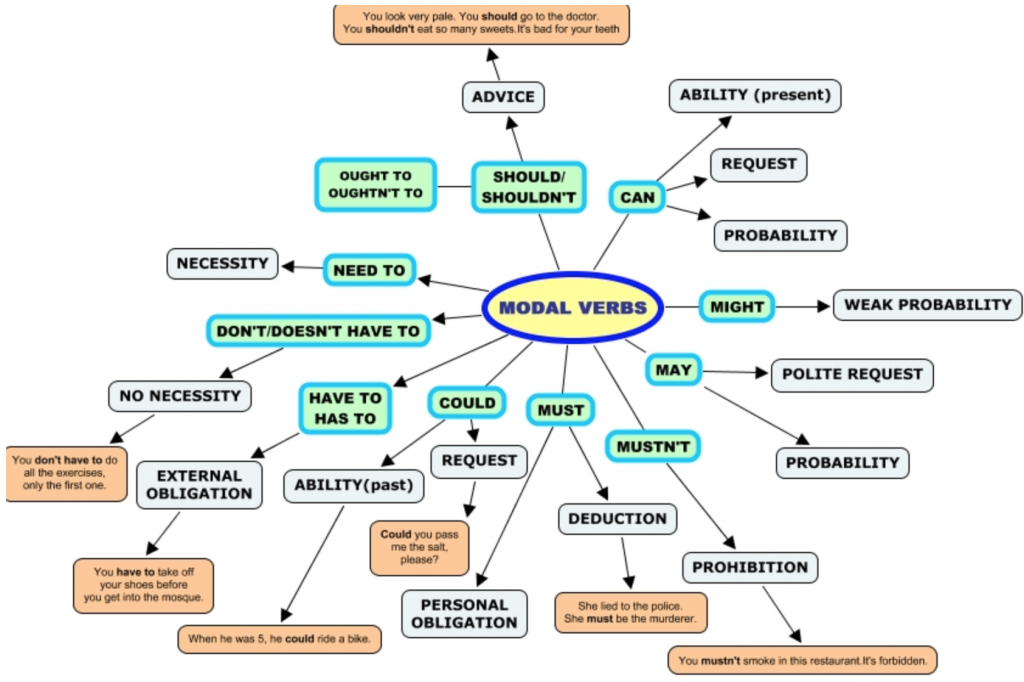RELATIVE CLAUSES
- Cümlenin ortak öznesi bulunur.
- Bir ana cümle, bir yan cümle.
- Ortak öznenin yanına “who/which/that” getirilir.
- who: insanlar, which: hayvanlar ve cansız nesneler, that: hepsi için kullanılır.
- who/which/that kullanılacak yerin bir önceki kelimesi mutlaka isim olmalıdır.
Eg: “Pizza yiyen adam, hamburger yemeyi sever”
“Adam pizza yiyor. (The man is eating a pizza.)” “Adam hamburger yemeyi sever.(The man likes eating hamburger)”
The man who is eating pizza likes eating hamburger.
“Yediğim yemek çok iyiydi.”: “Yemek yedim”, “Yemek çok iyiydi”: “The meal which I ate was very nice.”
TAG QUESTIONS (ONAYLAMA SORULARI)
Öyle değil mi?
Türkçe de bu cümleyi zamandan ve türden bağımsız olarak her cümleyle kullanabiliyoruz. İngilizce de cümlenin zamanına, türüne (+,-), öznesine bakmamız gerekiyor.
Şimdiki zaman: O şu anda havuzda yüzüyor, değil mi? (She is swimming in the pool right now, isn’t she?).
Onaylama sorusunda özel ad kullanılmaz. I, you, we, they, she, he, it kullanılır.
-Simple present tense (do, does)-
Some of the students knew the answer, didn’t they? (Birçok öğrenci ve simple past tense)
(+): Her father always comes home late, doesn’t he? (Babası sürekli gecikiyor, değil mi?)
(-): She hasn’t eaten breakfast yet, has she? (Henüz kahvahtı yapmadı, değil mi?)
Modals:
– We should use a sunscreen, shouldn’t we?
– She must buy herself a computer, mustn’t she?
– They may be late, don’t you think so / don’t you agree?
(may be/might be kullanıldığı zaman mayn’t veya mightn’t gibi kullanımlar olmadığından don’t you think so veya don’t you agree kullanılır)
Will You:
– Olumlu ve olumsuz emin ve rica cümlelerinde WILL YOU kullanılır.
– Rica cümlelerine kibarlık katmak amacıyla WOULD YOU / COULD YOU kullanılabilir.
There:
– Bu tür cümlelerde özne yerine THERE kullanılır.
– There is rainbow in the sky, isn’t there?
İşaret Zamirleri:
– This, that, these, those.
– Bu tür cümlelerde this ve that için it, these ve those için they öznesi kullanılır.
– This is your house isn’t it?
– Those are your books, aren’t they?
Belgisiz Zamir:
– Someone, no one, everyone…
– Bu tür cümlelerde özne olarak they kullanılır.
– Someone entered the house, didn’t they?
– Everybody was happy, weren’t they?
I am:
– Aren’t kullanılır.
– I am your friend, aren’t I?
– I am your friend, an I not? (daha resmi)
Bazen tag question kısmı, cümle olumlu olmasına rağmen olumsuz hale getirilmediyse ima, sevinç, sinirlenme belirtiyordur.
– She knows what she is talking about, does she? (ima)
– She wants to break up with me, does she? (anger)
IF CLAUSES / CONDITIONALS (Koşul Cümleleri)
- Türleri: 0-1-2-3 (gerçeklik, hayal olma durumuna bağlı olarak)
- Ortak özellikleri içerisinde en az 2 cümle bulundurmalarıdır.
- Koşul bümlesi (if cümlesi), temel cümle
TYPE 0:
– iki cümle de geniş zamanda kurulur.
– Genel geçer durumlar belirtilir.
– If you eat too much, you get fat.
– İhtimal anlamı yoktur. Bu yüzden fizik kurallarını açıklarken kullanılır.
– If you boil the water, it evaporates.
– If you pour oil into water, it floats.
– When sözcüğünün if yerini tutabildiği bütün cümleleri type 0 ile kullanabiliriz.
TYPE 1:
– Farklı tense’ler kullanılarak oluşturulabilir ancak en yaygını Geniş Zaman, Will şeklindedir.
– Olasılık anlamı vardır.
– If have enough time tomorrow, I will go shopping.
– If you don’t answer the questions correctly, you will fail.
Geniş Zaman, Modal:
– If he doesn’t win the election, he can’t be the mayor.
– If you like animals, you shouldn’t wear fur.
Emir Cümlesi, Geniş Zaman:
– Use your umbrella, if it rains.
– Don’t get into the river, if you don’t know how to swim.
MODALS VERBS

PAST CONTINUOUS TENSE (GEÇMİŞ ZAMANDA DEVAMLILIK)
- Geçmişte devamlılık gösteren tensdir. Geçmişte başlayıp, belli bir süre devam eden işleri anlatmak için kullanılır. Türkçe de “Sürekli geçmiş veya Şimdiki zamanın hikayesi” diyoruz.
(+): Subject + aux Verb + Ving + Complement
(-): Subject + aux Verb + not + Ving + Complement
– It was raining this morning.
– It was snowing yesterday.
– I was writing a book
– You were going to office.
– She was a little girl five years ago.
Past Continuous ile Zaman Zarfı:
– I was sleeping when you come.
– I was reading an interesting book, last night.
– He was going to school last year.
PRESENT PERFECT TENSE (YAKIN GEÇMİŞ ZAMAN)
| Subject | Aux Verb | Verb | Nesne/Sıfat | Yer Zarfı | Zaman Zarfı |
| I You We They |
have | cleaned Washed Seen Been |
the house your car him – |
– – – here |
just before this morning twice this week for 2 days |
| He She It |
has | had read rained |
the car two books a lot |
– – in London |
since monday so far recently/lately |
– I’ve, She’s şeklinde kısaltılabilir.
– Already (çok / zaten), Always (hep / her zaman), just (az önce), ever (hiç), never (hiç / asla)
– Never kullanıldığında cümle olumlu kurulur ancak anlam olarak olumsuzdur.